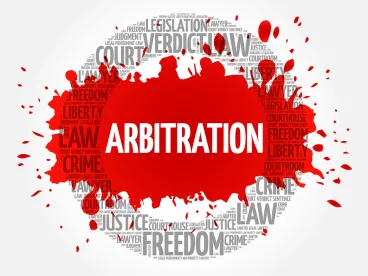Addressing whether the court or the arbitrator should determine the scope of arbitrability, the US Court of Appeals for the Fourth Circuit affirmed the dismissal of a complaint for trademark infringement, finding that when two sophisticated parties expressly incorporate the JAMS Comprehensive Rules and Procedures (JAMS Rules) into their contract, the parties demonstrate a clear and unmistakable intent to delegate arbitrability issues to the arbitrator. Simply Wireless, Inc. v. T-Mobile US, Inc., Case Nos. 16-1123; -1166 (4th Cir., Dec. 13, 2017) (Wynn, J) (Floyd, J, dissenting).
Simply Wireless and T-Mobile entered into a contract that included an arbitration clause incorporating the JAMS Rules. Simply Wireless later sued T-Mobile alleging trademark infringement, trade name infringement, unfair competition, false designation of origin and passing off. T-Mobile moved to dismiss, arguing that the parties’ incorporation of the JAMS Rules into the contract evinced the parties’ intent to vest the arbitrator—not the court—with the authority to resolve the dispute of whether Simply Wireless’s claims should be arbitrated.
The district court granted the motion to dismiss on the ground that Simply Wireless’s claims fell within the scope of the parties’ contract and must be arbitrated.
The Fourth Circuit affirmed the dismissal of the complaint on alternate grounds. It explained that because the contract at issue expressly incorporated the JAMS Rules, the parties had clearly and unmistakably intended to let the arbitrator determine the arbitrability of claims arising out of the contract. It explained that the mere incorporation of a clause agreeing to arbitrate all claims “arising out of” or “relating to” the contract does not evince the parties’ clear and unmistakable intent to vest the arbitrator with authority to resolve arbitrability disputes. But express incorporation of the JAMS Rules into the contract does demonstrate such an intent.
The Court therefore held that the district court erred in deciding the arbitrability of Simply Wireless’s claims rather than referring the issue to the arbitrator. It concluded, however, that dismissal of the complaint was still the proper result, because the incorporation of the JAMS Rules into the contract vested the arbitrator with the authority to resolve all arbitrability disputes.
Practice Note: The default rule is that questions of arbitrability are for the court, not the arbitrator, to decide. Where, however, the parties demonstrate a clear and unmistakable intent to delegate arbitrability issues to the arbitrator—for example, by explicitly incorporating the JAMS Rules into the contract—the court must order the parties to arbitrate arbitrability.



 />i
/>i

